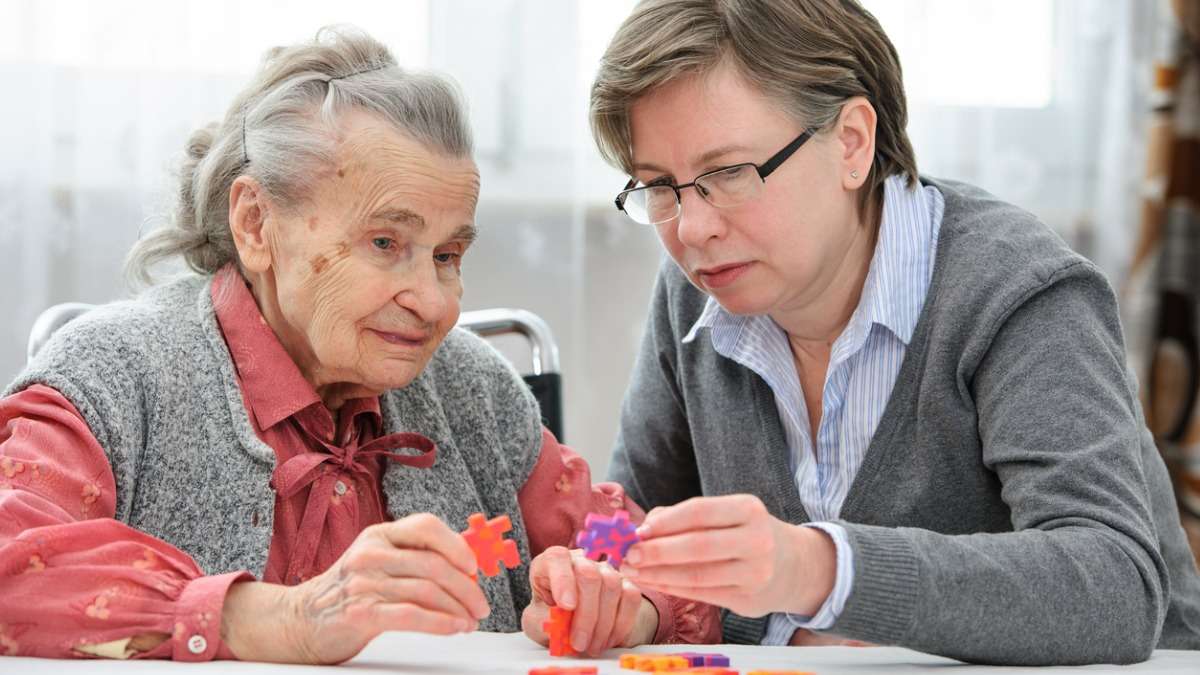
What Is Memory Care?
It’s not uncommon to experience memory changes as you age. However, some memory changes may signify something more serious, like dementia, and may indicate that you could benefit from specialized memory care.
Memory Care Basics
Before you start deciding whether or not memory care is for you, it’s important to understand what it is and what it can provide.
Memory care is specialized care for individuals with memory loss, such as dementia. Caregivers can provide memory care at a memory care facility or an individual’s home from an at-home care agency such as Visiting Angels. Most memory care options are 24-hour, but some agencies and facilities may offer other time frames to fit your schedule and budget.
Caregivers providing memory care focus on making the clients feel safe and comfortable. They help clients establish a routine, ensure they eat and care for themselves, and provide wander prevention. Memory care providers may also give medication reminders, transportation to appointments, and help with basic housekeeping.
What Makes Memory Care Different Than Other Care?
Memory care is specifically for individuals with memory loss from dementia or another form of cognitive decline. It offers many of the same benefits as other types of in-home care, such as help with household tasks and personal grooming. However, the trained individuals providing memory care understand the nuances and safety precautions needed when caring for someone with memory loss.
Are My Memory Changes Normal?
Every aspect of your body undergoes some sort of changes as you age, including your brain. As your brain changes, it’s common to notice memory changes, such as occasionally misplacing an item or needing extra time to recall information.
But when are memory changes no longer age-related, and are they signs of something more serious? According to the National Institute on Aging, it may be time to discuss your memory with a doctor if you:
- Repeatedly ask the same questions
- Get lost in familiar places, such as the home
- Have trouble following simple directions or recipes
- Find it difficult to take care of yourself
- Feel confused about the time or your location
Remember, even if you’re experiencing more elevated signs of memory loss, it does not officially mean you have dementia. It can be difficult but try not to jump to conclusions until you talk to your doctor.
Is Memory Care For Me?
Investing in memory care is a significant decision that can differ for everyone. It’s never too late or early to think about memory care, but if you or a loved one is experiencing the following, memory care may be a good next step for you.
- You or a loved one was recently diagnosed with dementia.
- You or a loved one are having trouble with daily tasks like basic housekeeping or cooking.
- It’s no longer safe for you or a loved one to drive.
- Loved ones are expressing concerns about you or a loved one living alone.
- You or a loved one are forgetting to take prescription medications.
- You or a loved one has trouble with personal care tasks like grooming, showering, or dressing.
- You’ve fallen at home.
Memory Care With Visiting Angels
Caring for a loved one with cognitive decline, including forms of dementia, is a challenging experience. It’s understandable for you to want to be there for your loved one at all times, but enlisting the help of a memory care professional is a wonderful way to help you and your aging loved one.
Visiting Angels offers various dementia care services to ensure clients live safely and comfortably at home. Our dementia care services include:
- Developing a calm environment and steady routine for clients at home
- Offering companionship to boost self-esteem
- Managing behavioral and mood changes like emotional outbursts
- Monitoring clients to prevent wandering and in-home accidents
- Providing dignified assistance with bathing, grooming, dressing, and toileting
- Offering relief for family caregivers
Contact our Prescott office to learn more about our memory care services.
